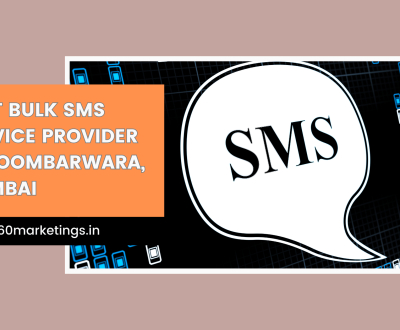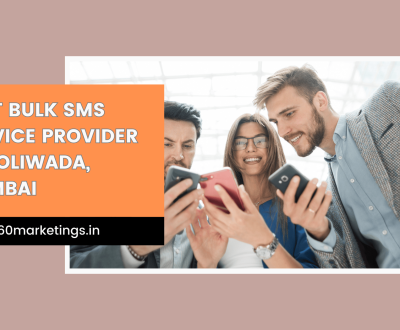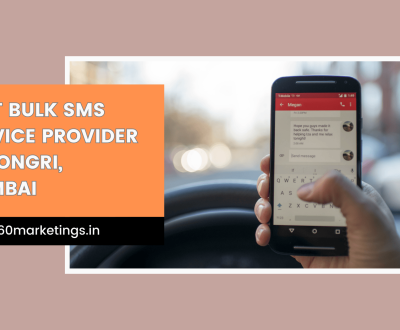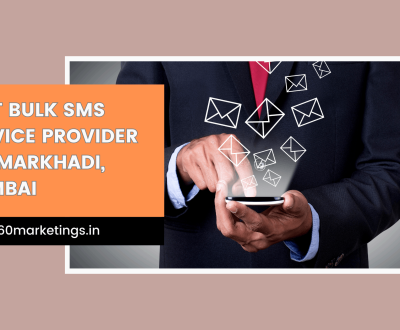The Ultimate Guide to Email Marketing Success: Strategies and Best Practices
- January 9, 2024
Introduction to Email Marketing Strategy
In the digital era, where communication channels abound, Email Marketing Strategy stands out as a formidable tool for businesses aiming to connect with their audience effectively. It involves sending targeted messages to a group of recipients via email, with the goal of fostering engagement, building brand loyalty, and driving conversions. The versatility of this form of marketing makes it suitable for businesses of all sizes, from startups to established enterprises. As we delve into the ultimate guide for email marketing success, understanding the fundamentals of Email Marketing Strategy is key to unlocking its full potential.

What is Email Marketing Strategy ?
Email Marketing is a form of direct marketing that utilizes electronic mail as a means of communicating commercial or informative messages to a specific audience. Unlike random promotional messages, effective email marketing is permission-based, meaning recipients have opted to receive communications from the sender. This opt-in approach enhances the relevance of the messages and increases the likelihood of engagement. These campaigns can take various forms, including newsletters, product promotions, event invitations, and personalized content tailored to the recipient’s interests.
Advantages of Email Marketing Strategy
The advantages are vast and impactful. One of the key benefits is its cost-effectiveness compared to traditional marketing channels. It allows businesses to reach a large audience at a fraction of the cost associated with print or TV advertisements. Moreover, this form of marketing provides a direct line of communication with the audience, fostering a personalized connection. The ability to segment email lists based on demographics, preferences, and behaviors enables targeted and relevant content delivery, increasing the chances of conversion. Additionally, email marketing allows for easy tracking and analysis of campaign performance through metrics like open rates, click-through rates, and conversion rates.
Cons of Email Marketing Strategy
While email marketing boasts numerous advantages, it is essential to acknowledge potential drawbacks. Overuse of email campaigns, leading to inbox fatigue, is a common concern. If recipients feel inundated with promotional messages, it can result in a decline in engagement and even lead to unsubscribes. Another challenge is the ever-present issue of spam. Emails that are not perceived as valuable or relevant by recipients may end up marked as spam, affecting deliverability and tarnishing a brand’s reputation. Balancing frequency, relevance, and value is crucial to mitigating these cons and ensuring the effectiveness of email marketing efforts.
The Future of Email Marketing: Navigating Trends and Innovations
Email marketing continues to evolve, adapting to technological advancements and changing consumer behaviors. As we peer into the future, several trends and innovations are poised to shape the landscape of email marketing.

Personalization Takes Center Stage:
Personalization will move beyond merely addressing recipients by their first name. Advanced AI algorithms will analyze user behavior, preferences, and interactions to deliver highly personalized content tailored to individual tastes.
Interactive Content Engages Audiences:
Email content will become more interactive, allowing recipients to engage directly within the email itself. Incorporating quizzes, polls, and surveys will provide a dynamic and engaging user experience, fostering increased interaction and response rates.
Mobile Optimization Remains Crucial:
With the majority of email opens occurring on mobile devices, optimizing emails for mobile will continue to be a priority. Responsive design, concise content, and mobile-friendly visuals will ensure a seamless experience for mobile users.
Augmented Reality (AR) and Virtual Reality (VR) Integration:
The integration of AR and VR elements into emails will create immersive brand experiences. Brands can showcase products in a virtual setting or allow users to interact with content in a three-dimensional space, enhancing engagement and leaving a lasting impression.
Automation Enhances Efficiency:
Automation will play an even more significant role, streamlining processes and enabling personalized, timely communication. Automated workflows for onboarding, nurturing campaigns, and personalized follow-ups will become commonplace.
Data Privacy and Consent Emphasized:
With increasing concerns about data privacy, email marketers will prioritize transparent communication and obtaining explicit consent. Furthermore, building trust with subscribers by respecting their privacy will be essential for maintaining positive sender reputations.
Artificial Intelligence (AI) Optimizes Campaigns:
AI will not only power personalization but also optimize entire email marketing campaigns. Additionally, from subject line testing to content recommendations, AI-driven insights will guide marketers in making data-driven decisions for better performance.
In navigating the future of email marketing, businesses must stay agile, embracing these trends to remain competitive. Moreover, by adopting innovative technologies and strategies, marketers can create more meaningful connections with their audience. This ensures the continued effectiveness and relevance of email marketing in the dynamic digital landscape.

Strategies for Email Marketing Success
Building a Responsive Email List:
Prioritize quality over quantity by cultivating a permission-based email list. Additionally, encourage sign-ups through your website, social media, and other touch points.
Segmentation for Targeted Campaigns:
Divide your email list into segments based on demographics, preferences, and behaviors. Then, tailor content for each segment to enhance relevance and engagement.
Compelling and Personalized Content:
Craft attention-grabbing subject lines and personalized content that resonates with your audience. Additionally, use dynamic content and merge tags for a personalized touch.
Mobile Optimization:
Ensure that your emails are optimized for mobile devices. Moreover, a responsive design and concise, mobile-friendly content are essential for engaging mobile users.
Automation for Efficiency:
Implement automation for welcome emails, drip campaigns, and personalized follow-ups. Furthermore, automation streamlines processes and ensures timely and relevant communication.
A/B Testing for Optimization:
Continuously refine your email campaigns through A/B testing. Additionally, experiment with different subject lines, content formats, and calls-to-action to identify what resonates best with your audience.
Metrics Analysis and Iteration:
Regularly analyze key metrics such as open rates, click-through rates, and conversion rates. Use insights to iterate and optimize your email marketing strategy for continuous improvement.
Conclusion
In conclusion, mastering the art of email marketing involves understanding its core principles, leveraging its advantages, and navigating potential challenges. As we embrace the future trends shaping the landscape of email marketing, implementing strategic approaches such as list segmentation, personalized content, and automation becomes crucial. By staying adaptable and integrating innovative practices, businesses can unlock the full potential of email marketing and foster meaningful connections with their audience.
For More Info Visit 360 Marketing
CLICK HERE
Frequently Asked Questions
1: What is Email Marketing?
A: Email Marketing involves sending targeted messages to a group of recipients via email to promote products, build brand awareness, and drive engagement.
2: Why is personalization important in Email Marketing?
A: Personalization enhances relevance, increasing engagement. Tailoring content based on user behavior and preferences creates a more meaningful connection with the audience.
3: How can I build an effective email list?
A: Encourage sign-ups through your website, social media, and events. Offer incentives like exclusive content or discounts to attract subscribers interested in your offerings.
4: What metrics should I monitor in Email Marketing?
A: Key metrics include open rates, click-through rates, conversion rates, and unsubscribe rates. Monitoring these metrics provides insights into the effectiveness of your campaigns.
5: How often should I send emails to my subscribers?
A: Frequency depends on your audience and content relevance. Strive for consistency without overwhelming subscribers. Test different frequencies to find the optimal balance for your audience.
6: What is the role of automation in Email Marketing?
A: Automation streamlines processes, allowing you to send timely, personalized messages. It’s crucial for tasks like welcome emails, drip campaigns, and targeted follow-ups for optimal efficiency.
7: How can businesses increase email open rates?
A: Compelling subject lines, personalized content, and optimizing the timing of emails can enhance open rates by capturing the recipient’s attention.
8: What is the significance of A/B testing in email marketing?
A: A/B testing compares two versions of an email to determine which performs better, providing insights into improving subject lines, content, and overall campaign effectiveness.
9. How does automation work in email marketing?
A: Automation streamlines repetitive tasks, allowing businesses to send timely, personalized emails based on user behavior, ensuring efficient and targeted communication.
10. What is the role of call-to-action (CTA) in emails?
A: CTAs prompt recipients to take specific actions, such as making a purchase, signing up for an event, or downloading content, increasing engagement and conversion rates.
" Harshil, a dedicated blogger at "360 Marketing Services Pvt Ltd," channels his passion for blogging into creating engaging and insightful content. With a profound commitment to delivering valuable marketing insights, he skillfully navigates the digital landscape, consistently producing content that resonates with the audience."
About us and this blog
We are a digital marketing company with a focus on helping our customers achieve great results across several key areas.
Request a free quote
We offer professional SEO services that help websites increase their organic search score drastically in order to compete for the highest rankings even when it comes to highly competitive keywords.
Subscribe to our newsletter!
More from our blog
See all postsRecent Posts
- The Benefits of Using White Routes in SMS Marketing December 9, 2024
- Businesses Report Higher ROI with Bulk WhatsApp Messages November 19, 2024
- Best Bulk SMS Service Provider in Koombarwara, Mumbai September 4, 2024









